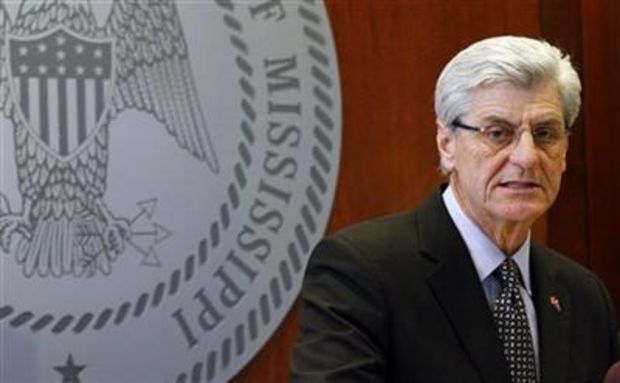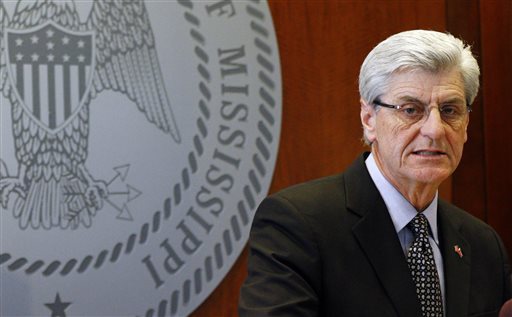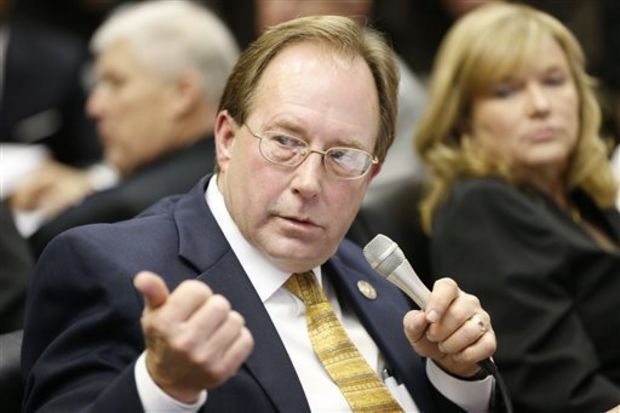

JACKSON, Miss. (AP) — Mississippi Gov. Phil Bryant on Wednesday signed a $2.5 billion budget for elementary and secondary schools, putting in place one of the biggest pieces of an overall state government spending plan for the coming year.
Bryant signed the bill the same day that members of the Joint Legislative Budget Committee met and increased the estimates of how much money the state can spend on a variety of other programs, including prisons, universities and Medicaid.
Committee members added nearly $102 million to the revenue estimate for fiscal 2015, which ends June 30, and $30 million for fiscal 2016, which begins July 1. The state-funded portion of the budget will be more than $6 billion for this year and next.
The higher revenue estimates are based on experts’ consensus that the state economy is improving and tax collections are increasing. The state economist, the director of the state Department of Revenue and the state fiscal officer evaluated employment rates and collections of sales taxes and individual and corporate income taxes.
“Employment did slow slightly more than expected in the closing months of 2014, but we believe growth will improve going forward and so our outlook for modest growth in the state’s economy remains largely intact,” state economist Darrin Webb told the Budget Committee in a room packed with lobbyists and agency directors.
House and Senate negotiators face a Saturday deadline to agree on budget proposals. After more than 100 budget bills are filed, they will go to the full 122-member House and 52-member Senate for consideration, starting Sunday.
“We’re going to have to get the sharp pencils out and make it work,” Senate Appropriations Committee Chairman Eugene “Buck” Clarke, R-Hollandale, told reporters after Wednesday’s meeting. “We’ve got a lot of needs. We’ve got to spread a little bit of money around. ”
Republican Lt. Gov. Tate Reeves, who presides over the Senate, said he believes most of the $30 million in additional revenue for the coming year should be spent on universities and community colleges.
“If we are going to grow our economy, if we are going to see long-term economic growth, then we’re also going to have to invest in having a better educated workforce,” Reeves said.
Medicaid, a government health insurance program for the needy, aged and disabled, is funded by state and federal money. Mississippi’s Medicaid program has already received $885.4 million in state money for the current budget year, and is requesting an additional $99.5 million before June 30.
Although Mississippi has not expanded Medicaid eligibility under the federal health overhaul that President Barack Obama signed into law in 2010, enrollment increased by 10 percent in Mississippi Medicaid and the state Children’s Health Insurance Program from January to December 2014, Medicaid director David Dzielak told budget writers several weeks ago. The increase was driven partly by people learning that they were already eligible for Medicaid and signing up for coverage, and partly by a change in the way family income is counted to determine who can enroll, Dzielak said.



